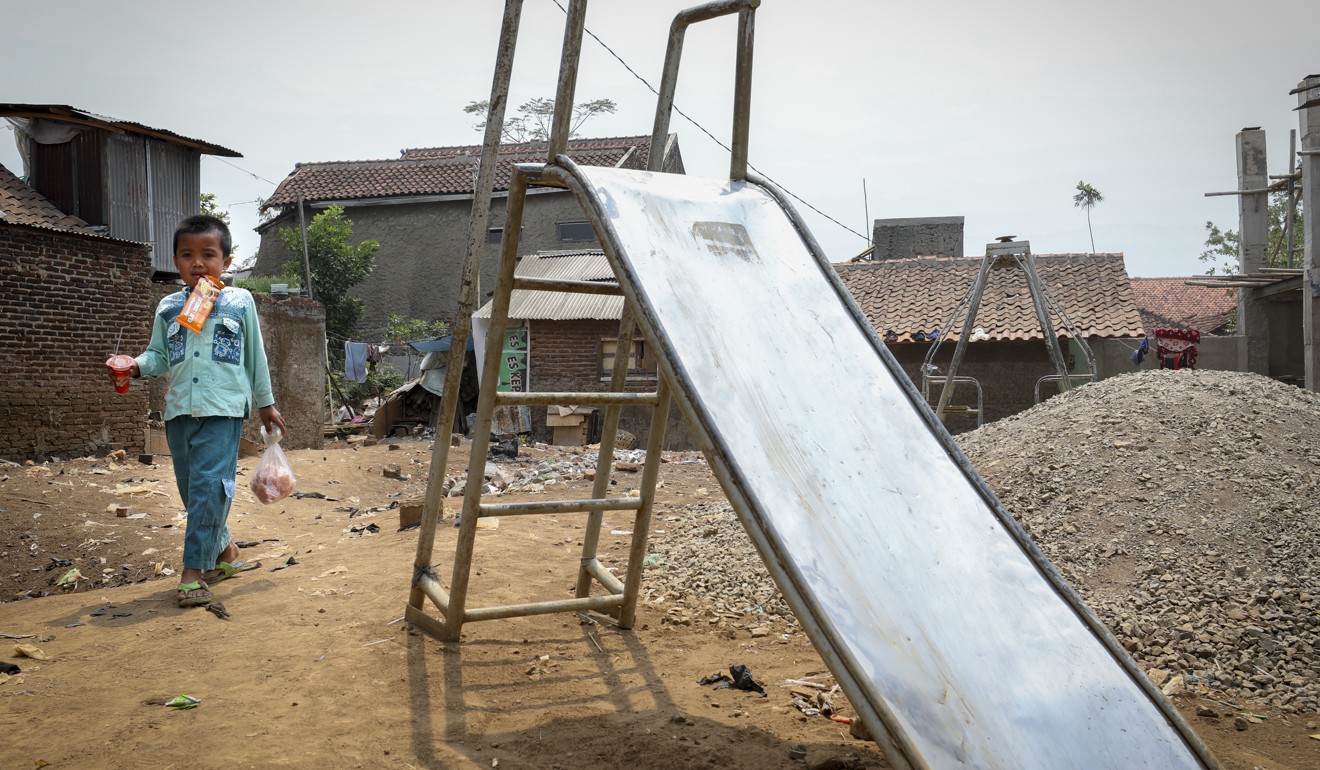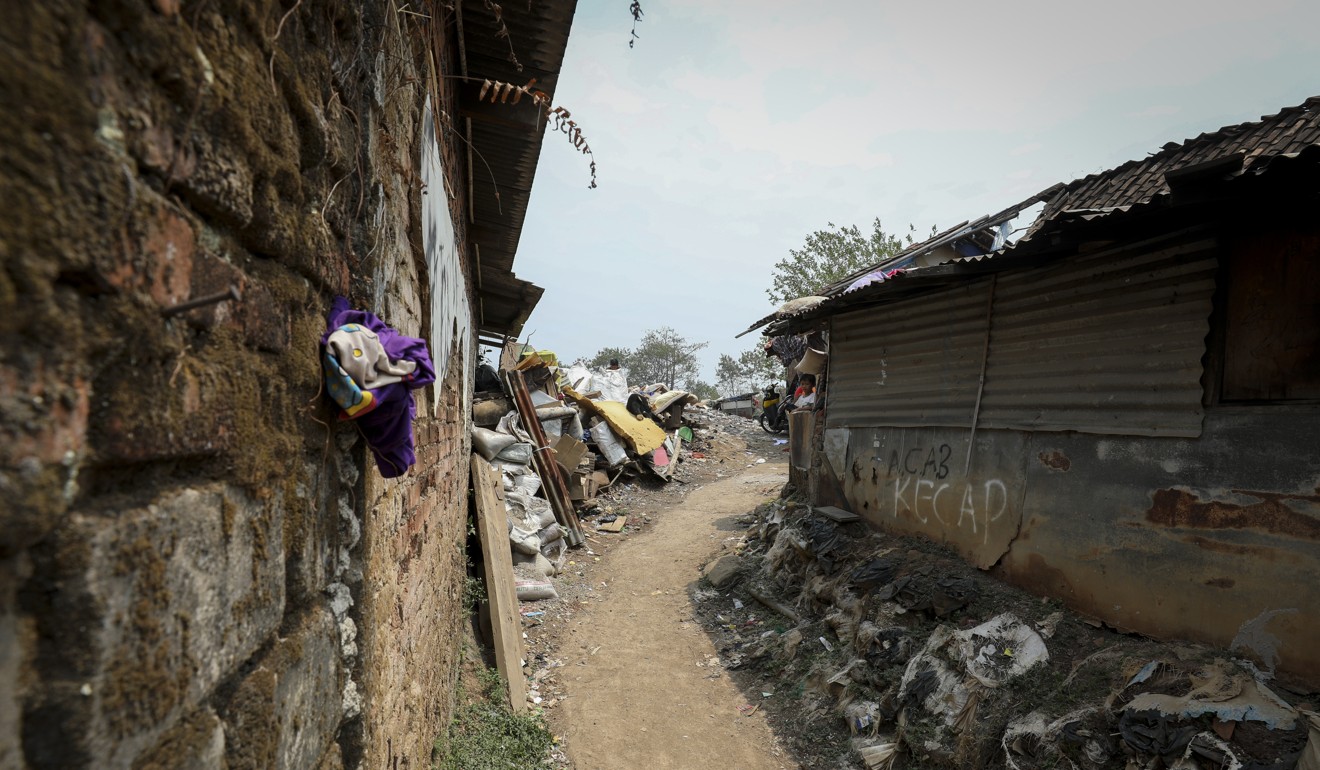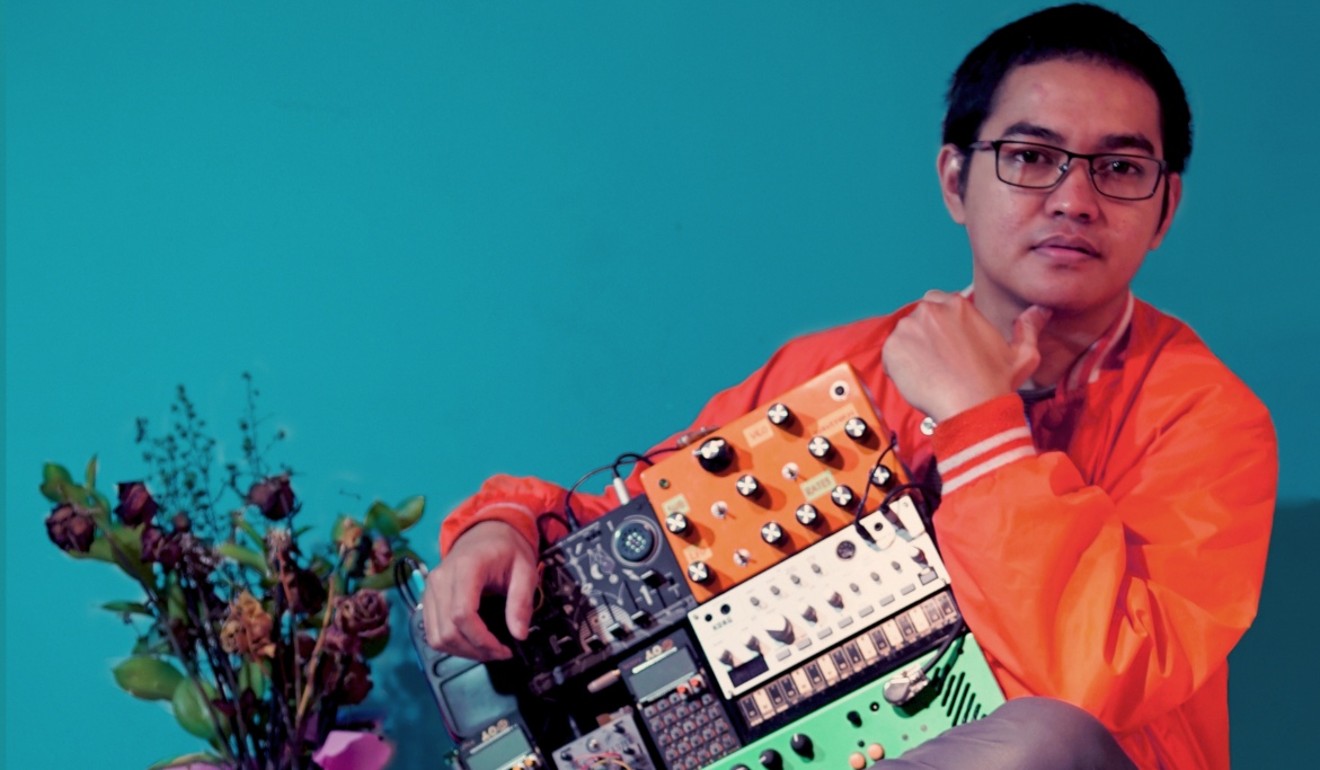
Strumming for the slum dwellers in Indonesia: musicians’ underground gigs for a cause
- Faced with a virtual closed shop and widespread social injustice, musicians in Bandung, West Java, go underground to raise awareness of slum battle
- Each act is there to illustrate one thing: music’s ability to fight against government policy and for the poorest in society
“Music in Indonesia cannot be severed from political domination and power,” says Kimung from his office in a residential area of Bandung, West Java.
The music historian and stalwart of the underground music scene in Bandung, who goes by one name, pores through decades of DIY magazines and articles as he explains the tricky relationship between the city, provincial and national governments in the west of the country, and the musicians who play there.
Indonesia’s hijab headbangers and the first heavy metal president
Bandung is a place where music and the arts infuse all facets of life, from the army barracks that have been turned into artist studios to the violinist playing to drivers at traffic lights.
Despite this, the city has a history of clampdowns on musical expression. “If you didn’t follow the [government’s] policy, there was no place for you in this music industry,” says Kimung, referring to the reality of Bandung’s musicians in the 1980s. “The government sees the musical potential of young people, and economises it, but does not allow the development of critical attitudes among musicians in addressing various injustices in society.”

Thirty years on, musical expression is still suppressed and police routinely shut down shows in the city.
“The police never give permits for a concert unless guaranteed money is provided by the organisers,” says Jagalbabi, organiser of the Bandung Null Emergence (BNE), a series of underground music gigs set up to tackle a perceived injustice in society.
The shows take place in slums around the city, and bring together local and international musicians to raise awareness of issues caused by a slum clearance programme.

The national government programme is designed to clear slum areas, relocate residents and rebuild on the cleared land, but has come up against opposition due to a number of issues – from a 1960 law that should give ownership to people who occupy land for 20 years, to the terms of the relocation.
The gigs bring together artists from different musical backgrounds, whether that is Bandung local Tesla Manaf – a New York-trained jazz musician now performing blisteringly inventive breakcore – international touring acts such as The Eye of Time or local performance art and drone soundscape artist Eviction.
Seeing these musicians play on top of rubble, while life goes on as normal for the families left in the slum, is emotive.
More than that, the BNE series tells a deeper story about the music scene in Bandung, partly illustrated by the success of the recently elected governor of West Java, Ridwan Kamil. Heavy metal fan Kamil was elected mayor of Bandung in 2013 and, according to Kimung, his election was a product of the underground music scene.
“In 2012 there were 40,000 metalheads in Bandung – equivalent to 1.7 per cent of residents – so it was politically significant to bring up independent candidates from the metal music scene to become candidates for mayor.”
With a metalhead in office, the future of underground shows in Bandung seemed positive, but slum clearances increased significantly and police crackdowns on underground shows continued. This led to the birth of the BNE series as part of the wider Tamansari Melawan movement that campaigns against slum clearances and raises funds for their victims.

It is also positioned against the corporate sponsorship from cigarette companies that is pervasive in the Indonesian music scene. According to Kimung, “most music communities are co-opted by cigarette companies. They supply huge funding for concerts.”
Sponsorship from cigarette companies means that only a selection of promoters are able to put on concerts. DIY promoters, who can’t access this sponsorship, rely on the generosity of gig-goers or the depth of their own pockets to ensure their show can continue after the police show up.
This closed shop can make it difficult for independent artists to play locally. “Underground gigs or venues have their own circle,” says Tesla Manaf, who made the switch from playing jazz to breakcore in the past year. “I’m struggling. I’m forbidden to play in certain gigs because I’m a jazz musician.
“BNE is an eye-opening experience: the energy is huge, but they cannot even rent a cheap sound system each month because of a lack of money.”
The BNE shows are eye-opening for many reasons. While searching out Resital Eksperimental – a show in the BNE series – I find myself in the dark at the bottom of a cul-de-sac where the buildings are dwarfed by a shopping centre and a highway running overhead. The only sign of the illicit show is groups of young Indonesians in DIY black band T-shirts ducking between homes.
Following them down an alley I am engulfed by home life, families eating and talking on either side and above me, before I suddenly find myself in a clearing. Rubble everywhere, I am standing in the middle of what was once someone’s kitchen.
Indonesia’s hijab-wearing Muslim metal group smashes barriers
Each act is there to illustrate one thing: music’s ability to fight against government policy and for the poorest in society. The four-year-olds wearing Batman pyjamas and playing in the rubble suggest this battle may continue for generations to come.

